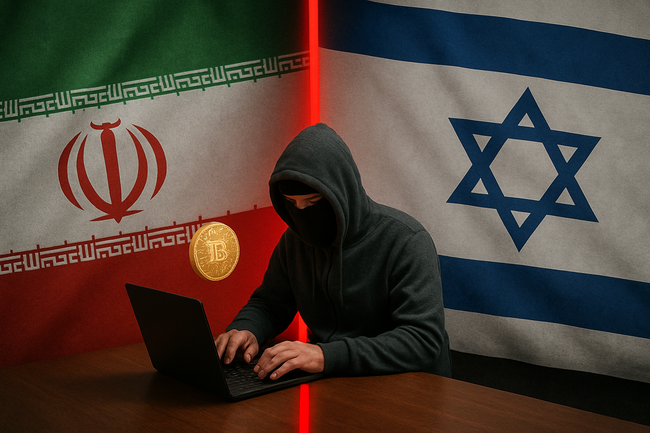Highlights:
- Israel’s counter-terror unit froze millions in crypto wallets linked to the Iranian IRGC.
- Blockchain experts revealed that frozen wallets once processed nearly $1.5 billion in Tether.
- U.S. sanctions and hacks intensify global crackdown on IRGC’s digital financial networks.
In the ongoing Iran–Israel conflict, Israel’s anti-terror finance unit (NBCTF) has frozen 187 cryptocurrency wallets said to be linked to Iran’s Islamic Revolutionary Guard Corps (IRGC). Officials said these wallets funded serious terrorist activity. The National Bureau for Counter Terror Financing carried out the action under Israel’s 2016 Anti-Terrorism Law, while Defense Minister Israel Katz approved the move.
The Ministry of Defense stated:
“I hereby order the seizure of the property and of any other virtual asset that is found or will be found in the wallets, as stated, in order to confiscate the same subject to the provisions of section 66 of the Law.”
Elliptic Tracks $1.5 Billion in IRGC-Linked Tether Wallets
Blockchain analysis company Elliptic says the 187 wallets together handled about $1.5 billion in Tether (USDT) over time, but they now hold only about $1.5 million. The blockchain monitoring firm reported that Tether blocked nearly 39 of the 187 identified wallets since September 13.
Israel seized 187 crypto wallets linked to Iran’s IRGC that reportedly moved $1.5B in $USDT.
Only about $1.5M remains across the wallets, TechCrunch reports. pic.twitter.com/hlUnPHvX7g
— M3TA MEDIA (@m3taweb3) September 16, 2025
The freeze stops anyone from using the remaining money or making new transactions. Iran created the IRGC as an armed and security force after the 1979 revolution to safeguard the ruling system and preserve the Islamic Republic. The United States, the European Union, Israel, and several other nations designate the IRGC as a terrorist group. Authorities have already targeted Iran’s crypto multiple times.
Digital rights expert Amir Rashidi from the Miaan Group said Israel might have gathered information by hacking Iranian systems. He also said the IRGC often moves money through middlemen, like crypto exchanges or companies that look private.
Sanctions and Hacks Against IRGC Networks
Elliptic’s co-founder, Tom Robinson, said they can’t be sure the wallets really belong to the IRGC. This action comes after the U.S. Justice Department recently took $584,741 in Tether (USDT) from Iranian national Mohammad Abedini.
Abedini started a company that makes navigation systems, and reports say the IRGC uses them in drones, including the Shahed UAV. In December, authorities charged him with helping the IRGC Aerospace Force, its missile and air unit, by providing material support.
Around the same time, the U.S. expanded sanctions to include additional crypto wallets. These addresses reportedly processed nearly $332 million in USDT and were tied directly to Sa’id Ahmad Muhammad al-Jamal. Authorities sanctioned him after confirming he channeled millions to Yemen’s Houthi group, Ansarallah, with assistance from senior IRGC-Qods Force officials.
Moreover, in June, a pro-Israel hacker group called Predatory Sparrow attacked Iran’s largest crypto exchange, Nobitex. They stole about $90 million in digital coins and sent the money to wallets no one can use. Elliptic and other watchdog firms say Nobitex has links to the IRGC, pointing to its use by sanctioned members accused of ransomware attacks. Government agencies and blockchain experts are now working together, making it harder for groups like the IRGC to move money.
NOW: Iran orders crypto exchange curfew (10 am–8 pm) after a $90–100M hack on @nobitexmarket, aimed at preventing capital flight and improving incident response.#Israel #IsraellranConflict #Iran #IranIsraelConflict pic.twitter.com/BQxF9sNLzQ
— Coin Headlines (@coinheadline) June 19, 2025
Best Crypto Exchange
- Over 90 top cryptos to trade
- Regulated by top-tier entities
- User-friendly trading app
- 30+ million users
eToro is a multi-asset investment platform. The value of your investments may go up or down. Your capital is at risk. Don’t invest unless you’re prepared to lose all the money you invest. This is a high-risk investment, and you should not expect to be protected if something goes wrong.






